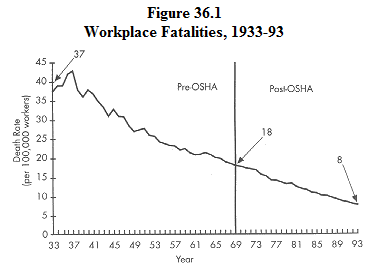By the way, amongst other things, I'm a qualified Site Health & Safety Officer in the construction industry.
And in your experience companies don't take environmental, health and safety seriously?
I have worked in the energy business for 20+ years and I can tell you it's taken very seriously. By companies interested in staying in business, anyway.
My guess is there are varied reasons for that. Some of them will have to do with compliance with regulations or standards imposed and possible costs associated, sometimes financial penalties, sometimes, given greater customer/public awareness, to do with reputation. Some may have to do, especially in larger companies, with realising actual savings in terms of productivity, fewer costs arising from claims, lower insurance premiums, etc. But by and large, improved H & S has had to be imposed, usually by governments.
Part of the problem, that I see, is that unless there is some sort of monitoring, firms tendering can lose out to less H & S-conscious firms.
I also think that part of the reason some businesses source or manufacture in underdeveloped countries is to save costs and part of the value obtained is because H & S standards are lower, or in some cases, non-existent.
So you get situations where Joe Bloggs can get a shirt in Matalan for £3 just after the Bangladeshi factory it was made in collapsed and killed 300 workers and Jenny Bloggs can get a dress in Primark for a fiver just after the factory in Bombay burned down taking 200 badly-treated (even before the fire) workers with it.

